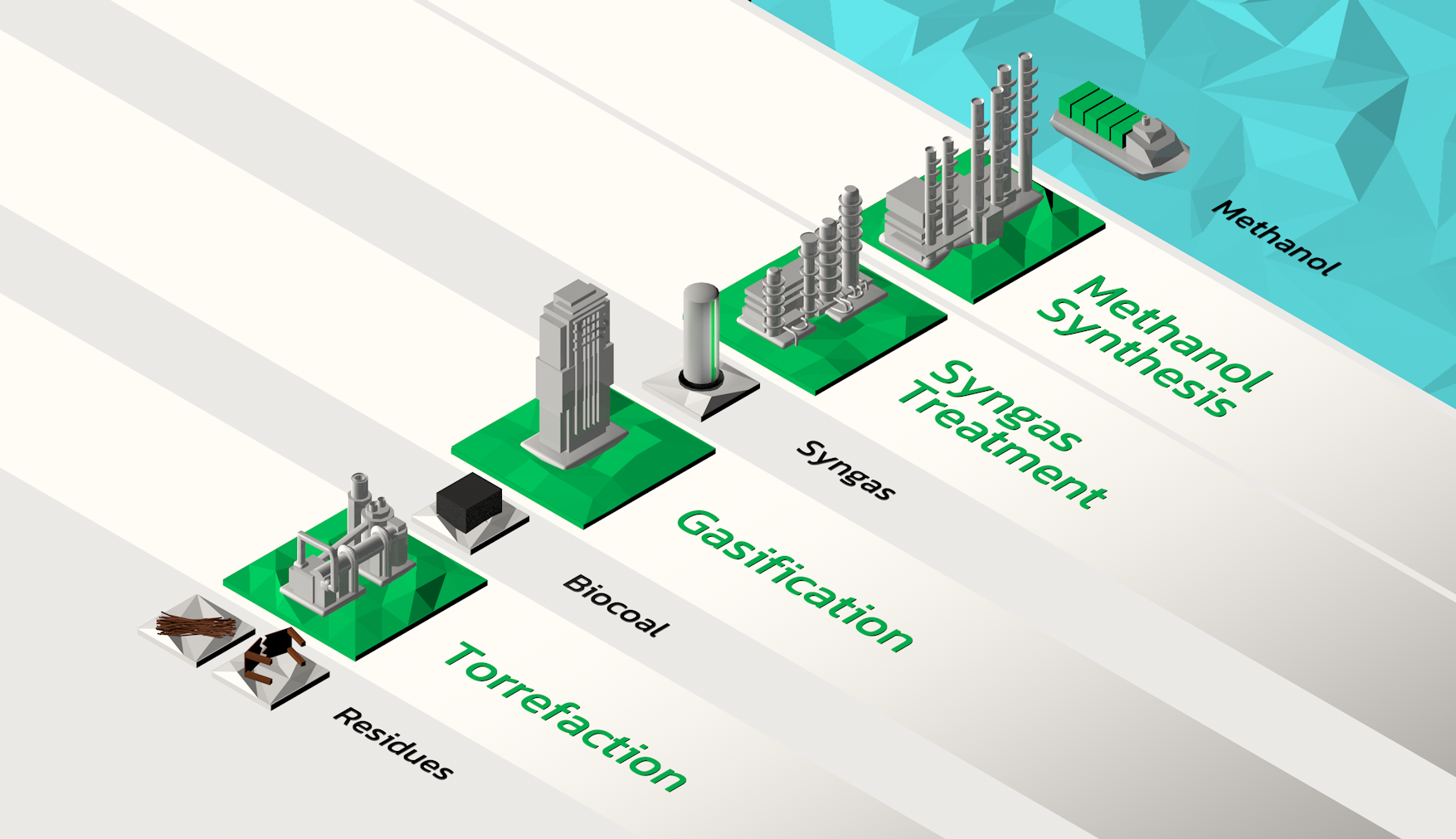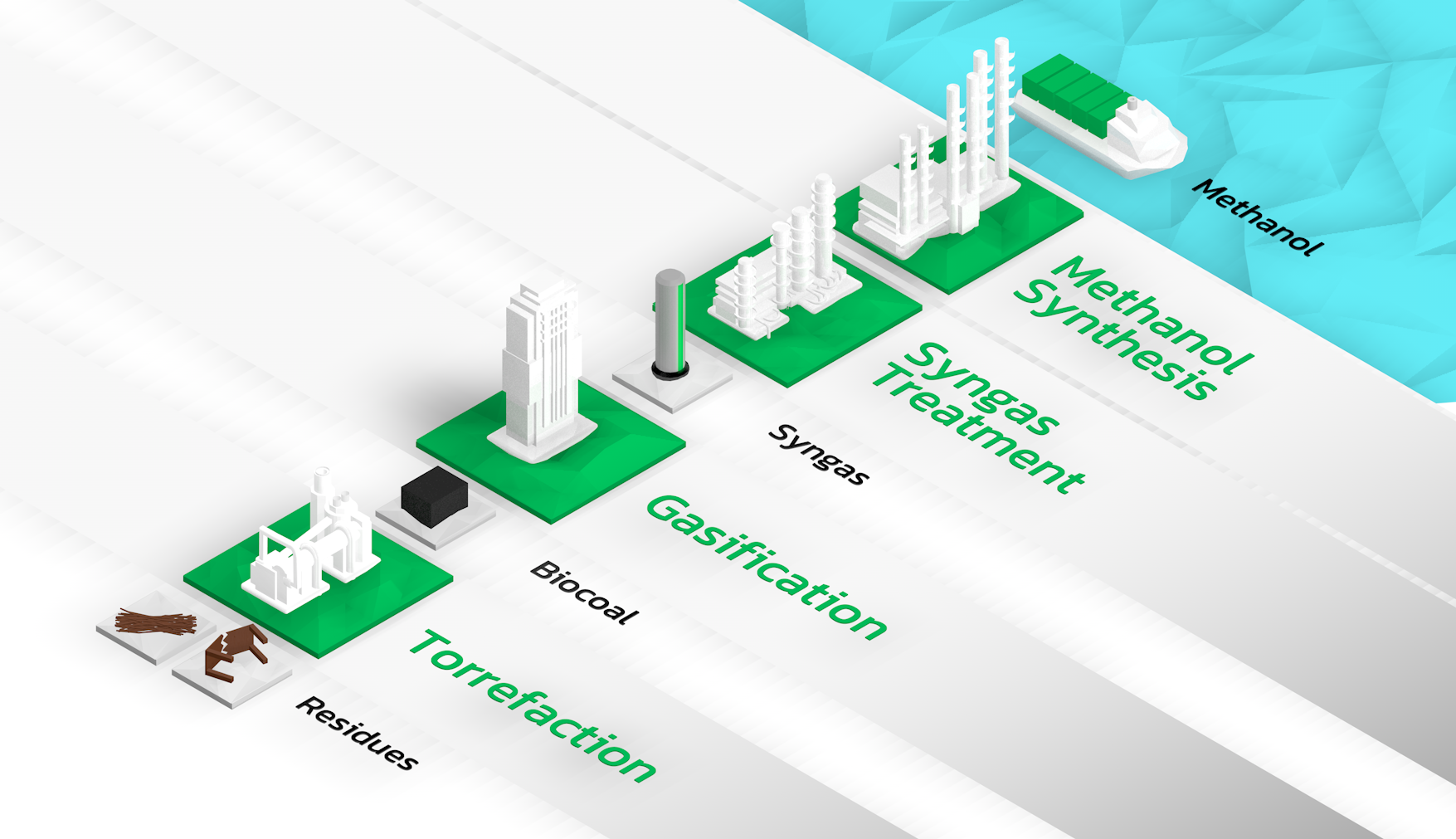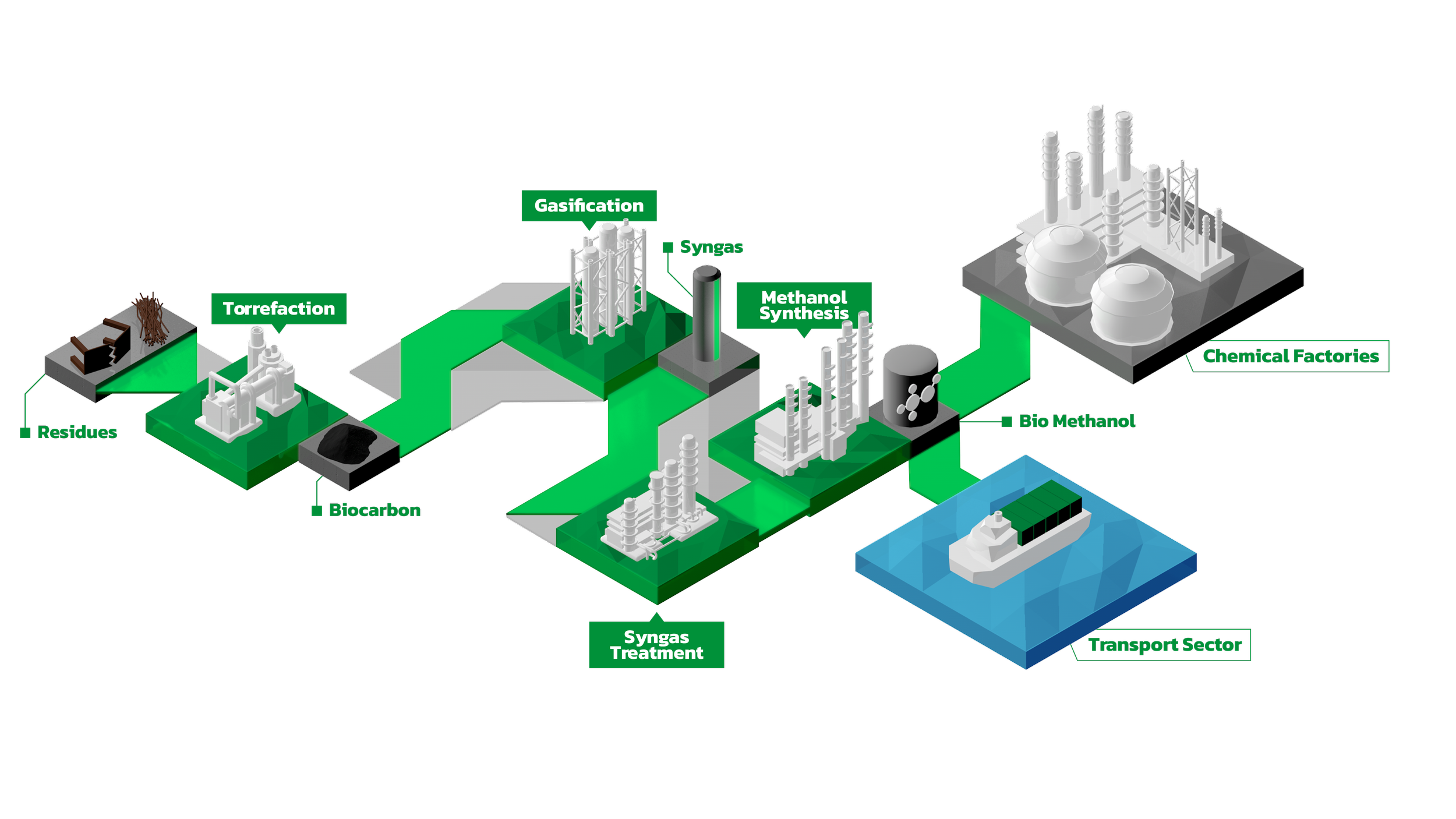Perpetual Next transforms organic waste into renewable resources through three key processes:
Bio-conversions: Turning organic waste into sustainable products like energy and fertilizers.
Biocarbon: Producing renewable carbon from bio-residues using advanced technology.
Developments: Gasifying waste to create valuable chemicals and green fuels.
I collaborated with Perpetual Next to illustrate these processes in detailed flowcharts. Check them out to see how waste is turned into energy and sustainable products!
BIO METHANOL
Perpetual Next is expanding industrial production of bio methanol, a sustainable alternative to fossil-based methanol. Used in many everyday products and as a fuel, biomethanol helps reduce dependence on fossil resources. By 2028, Perpetual Next aims to produce 440,000 tons annually from organic waste.
CONVERSIONS
The Conversion process involves using food waste and animal byproducts to produce biogas. Biogas can be utilized for heat and power generation, or it can be refined into biomethanol once the CO2 is separated. The by-product, known as Digistate, can be dried and employed as a natural fertilizer.














